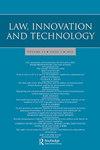沙漠中的沙箱:跨境“海湾盒子”可行吗?
Q1 Social Sciences
引用次数: 0
摘要
摘要世界各地的许多金融中心都将监管沙盒作为支持和促进金融技术创新的工具。沙盒可以在不扼杀创新的情况下管理和控制风险。近年来,阿拉伯海湾国家(科威特、沙特阿拉伯、卡塔尔、阿曼、巴林和阿拉伯联合酋长国)引入(或正在引入)监管沙盒,通过推广金融技术等方式支持经济多元化努力。在其他国际中心和全球网络已经在建立区域和跨境沙盒平台之际,这些特定管辖区的沙盒正在出现。鉴于海湾国家之间在文化和经济上的相似性,区域沙箱可能是表面上合乎逻辑的进展。然而,除此之外,政策制定者必须首先解决并克服几个严重的障碍。地缘政治现实和数据共享的敏感性(特别是在金融背景下)构成了针对单一沙盒政策缓解的一些最关键的挑战。如果校准得当,一个地区沙盒可能会鼓励该地区金融科技行业的繁荣,并修复海湾国家之间的关系。本文章由计算机程序翻译,如有差异,请以英文原文为准。
Sandboxes in the desert: is a cross-border ‘gulf box’ feasible?
ABSTRACT Many financial hubs around the world have used regulatory sandboxes as a tool to support and promote innovation in financial technology. Sandboxes can manage and control risks without stifling innovation. In recent years, the Arab Gulf States (Kuwait, Saudi Arabia, Qatar, Oman, Bahrain and United Arab Emirates) have introduced (or are introducing) regulatory sandboxes to, among other things, support economic diversification efforts through the promotion of financial technology. These jurisdiction-specific sandboxes are emerging at a time when other international hubs and global networks are already establishing regional and cross-border sandbox platforms. Given the cultural and economic similarities between Gulf States, a regional sandbox may be the ostensible logical progression. Beyond this vision, however, policymakers must first address and overcome several serious obstacles. Geopolitical realities and the sensitives around data sharing (particularly in a financial context) constitute some of the most critical challenges mitigating against a single sandbox policy. Rightly calibrated, a regional sandbox may encourage both a flourishing of the fintech sector in the region, and mending ties between Gulf States.
求助全文
通过发布文献求助,成功后即可免费获取论文全文。
去求助
来源期刊

Law, Innovation and Technology
Social Sciences-Law
CiteScore
4.50
自引率
0.00%
发文量
18
期刊介绍:
Stem cell research, cloning, GMOs ... How do regulations affect such emerging technologies? What impact do new technologies have on law? And can we rely on technology itself as a regulatory tool? The meeting of law and technology is rapidly becoming an increasingly significant (and controversial) topic. Law, Innovation and Technology is, however, the only journal to engage fully with it, setting an innovative and distinctive agenda for lawyers, ethicists and policy makers. Spanning ICTs, biotechnologies, nanotechnologies, neurotechnologies, robotics and AI, it offers a unique forum for the highest level of reflection on this essential area.
 求助内容:
求助内容: 应助结果提醒方式:
应助结果提醒方式:


